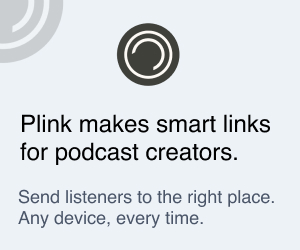Episode details
Persuasion, the ability to persuade. It's a core skill that every entrepreneur should be adept in. Without it, you'll probably find it hard to raise capital, attract clients, or even close a sale. Thankfully, becoming a master persuader is relatively straightforward. All you have to do is invest a little time and effort into learning a few basic principles, six of them to be exact. Those principles are outlined beautifully in the bible of persuasion, the book, Influence: The Psychology of Persuasion, by our guest today Dr. Robert Cialdini or Bob as he likes to be called by.
These universal principles of persuasion are as follows. Number one, reciprocity. We tend to reciprocate even if we really don't want to. This isn't just because of social pressure, it's in our genes even. Hare Krishna, for example, want to give you a flower, but you'll go out of your way to avoid them so you don't get stuck with a flower you don't even want and feel obligated to make a donation. But you will make that donation even though you don't want to because of that social pressure, the law of reciprocity.
Number two, scarcity. When it's scarce, we want it more. We see scarcity used to manipulate us with special offers that are time-limited and/or quantity-limited, and it works.
Number three, authority. If you are the undisputed guy or gal in your category, the one with the New York Times bestseller or the keynote speaker who's invited to all the big industry events, that status conveys a halo of infallibility and awesomeness on you.
Number four, consistency. We want to be consistent with our previously formed opinions even if they're wrong. We don't want to look inconsistent, confused, wishy-washy, even just to ourselves, so we will double down on our stupid original bad calls.
Number five, liking. This one seems pretty obvious, but it's insidious. We want to do business with people we like. It's unfortunate if those people are inept, and doubly unfortunate if the person we don't like for some unjustifiable reason is the exact right person for the job.
Number six, consensus. This is also known as social proof. There are lots of ways we could have social proof. A client list with impressive names, as seen on logos from the major TV networks and in TV shows, a who's who of celebrity friends. It means basically that you've come preselected which saves me the consumer or client, a lot of time in terms of the due diligence that would normally be required. Fewer calories to burn in our big brains. Bob followed up with this seminal work with another one pre-suasion. I'll let Bob defined pre-suasion for you, but suffice it to say, it's powerful.
Whether you're familiar with Bob's work or not, you probably have come across some concepts he's developed like social proof, because they have become crucial tools for marketers seeking to understand human behavior. Dare I say even a cornerstone to marketing.
On this episode number 201, I'm excited to welcome Bob to my show so he can share with you some of his game-changing wisdom backed by hard science and lots of research on human psychology in marketing. If you're looking to understand your market on a deeper and more profitable level, and then to ethically influence them to take the action is right for both them and you, this episode is not to be missed.



Comments
Add new comment
Login to comment